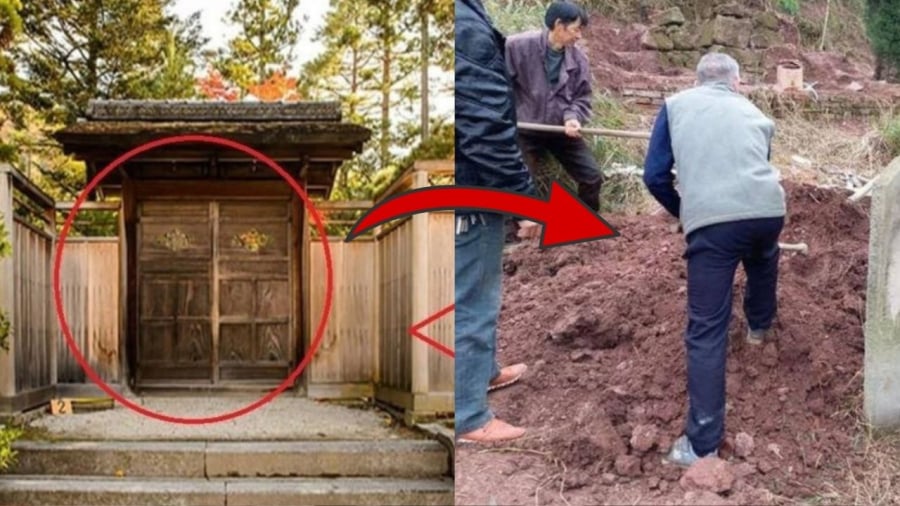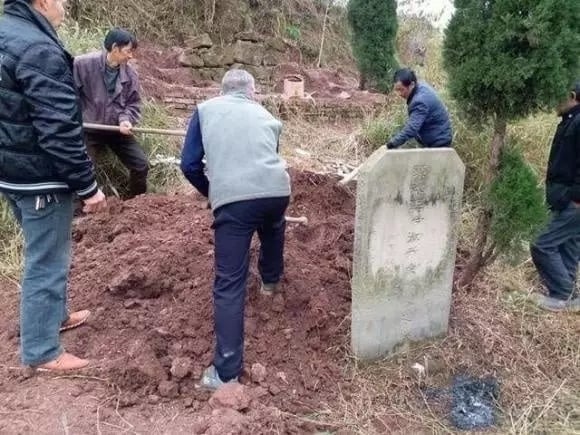The saying, “When you’re poor, don’t fix your door, and when you’re rich, don’t move your ancestor’s grave,” is quite straightforward and carries a deep meaning.
When you’re poor, don’t fix your door

Ancestral Warning: “When You’re Poor, Don’t Fix Your Door, and When You’re Rich, Don’t Move Your Ancestor’s Grave”
According to ancient beliefs, the front door is the “face” and represents the feng shui of the house. It is where luck and positive energy enter. Hence, the phrase “a tall house with a wide door” signifies a family’s wealth and prosperity.
This belief has led many people to aspire to change their fortunes and achieve wealth by altering the appearance of their homes. They attribute their poverty to bad feng shui and thus seek to change their fate by fixing their “door faces.”
“When you’re poor, don’t fix your door” also implies that some families may appear grand and opulent on the outside, but in reality, they are hollow, with nothing of value within.
For impoverished families with no substantial means, constructing a grand entrance will serve no practical purpose. Instead, it will only increase their financial burden.
When building a house, people pay close attention to the location, orientation, and size of the door, all of which are determined by feng shui principles. Even in the construction of modern skyscrapers and high-end office buildings, these considerations remain essential. Therefore, the front door is something that should not be altered arbitrarily, as it can bring misfortune to the family.
When you’re rich, don’t move your ancestor’s grave
In the past, people believed that wealth and prosperity were blessings from their ancestors. It was thought that one’s good fortune was a result of the ancestors’ protection and the accumulation of virtue over generations.
Additionally, even if a family becomes wealthy and prosperous, they should not become arrogant and start moving their ancestors’ graves on a whim. Humility and respect for one’s ancestors are essential, and one should always remember their roots. Going against this natural order will lead to the family’s decline.

Respecting Ancestral Graves: A Sign of Humility and Gratitude
Today, the saying “When you’re poor, don’t fix your door, and when you’re rich, don’t move your ancestor’s grave” still holds value. However, with rapid societal development, construction projects, and road expansions, the feng shui of ancestral graves may be affected.
Many people feel apprehensive about altering or moving graves. In reality, if done correctly, these actions can benefit descendants. The key is to ensure that any changes adhere to precise and reasonable feng shui standards. For instance, relocating an ancestor’s grave to a feng shui treasure site can significantly enhance the luck and well-being of future generations.







































